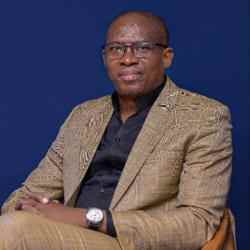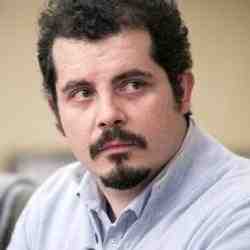Introduction
Achraf is preserving the victories of the Tunisian revolution by battling micro- and macro-corruption on myriad fronts, and organizing young people around transparency, good governance, and anti-corruption to create a national and regional dynamic against corruption with a powerful citizen sector at its heart.
The New Idea
“Fair opportunities for all, you bunch of thieves” chanted Tunisians on the streets of Tunis, the capital of Tunisia, until the ousting of longtime Tunisian dictator, Ben Ali. Coupled with his own experiences, the revolution’s slogan ignited a flame in 25-year-old Achraf Aouadi to fight “the bunch of thieves” and afford his people a “fair” and transparent ecosystem for citizens to flourish.
Since 2011, Achraf has been reclaiming the fight against corruption in Tunisia by redefining its actors through his organization I WATCH. Long monopolized by professionals, Achraf is including every citizen in both, macro- and micro anti-corruption measures, regardless of academic or social status, and geographic location. To integrate civil society, especially youth, Achraf provides them the necessary tools to fight corruption from the bottom-up, and enables them to build their own strategies, which in turn builds their capacities and strengthens their skills, creating an empowered, politically active community. This way, he is localizing and institutionalizing the war against corruption.
Comparing it to Bitcoin, Achraf is decentralizing the anti-corruption movement within Tunisia and the region, so the ecosystem remains safe, regardless of what happens to its leaders. Today, I WATCH has 7 offices across Tunisia with 30 full-time staff members and has empowered 40 local citizen sector organizations across the country to become local watchdog organizations. Throughout the years, Achraf has heavily influenced four corruption-related policy changes, and introduced one new law, with the number of direct beneficiaries reaching 10,000.
Though Tunisia is a good prototype to test the idea, Achraf aims to create a regional dynamic against corruption with youth and grass-root citizen sector organizations at its heart; a dynamic emanating from the context of the region and its real needs taking into account its specificities instead of the copy-paste programs that are imported from different contexts and have proven to be less efficient in the MENA region.
The Problem
In Tunisia, corruption has become a symptom of a larger disease- (i) over-centralization, (ii) professional monopoly and the resulting (iii) exclusion of youth from the political sphere, and (iv) the failure of institutions and governance.
Since 2011, Tunisia has been progressively moving from being a regime tightly controlled by the ruling party to an electoral democracy worthy of its name. As opposed to the ousted regime of Ben Ali that strictly governed the socio-political scene, Tunisia has experienced major improvements in terms of electoral freedom and practices, civil rights and freedom of the press post Jasmine Revolution. Despite the fact that ubiquitous corruption was one of the main reasons people took to the streets in 2010, the fact that Tunisia’s rank dropped from 54 in 2010 to 74 in 2017, according to Transparency International’s Corruption Perception Index (1 being least corrupt) indicates a lot about the country’s political and economic eco-system after a revolution that ensued for that very reason. In fact, 2017 Tunisia is way more corrupt than it was under Ben Ali’s reign. According to the head of Tunisia’s National Anticorruption Authority, Chawki Tabib, the state loses on average TD2 billion (~ $800 million) per annum due to kleptocracy, corruption-related transactions and the poor governance of public procurements.
Nonetheless, corruption cannot be appraised autonomous from Tunisia’s over-centralization. Ever since its independence, Tunisia has known a strictly centralized political system, where local authorities were appointed by the central state and had little to no power. Accordingly, corruption is highly concentrated in the interior regions of Tunisia, since 94% of high-ranked public officials work in the capital, Tunis, compared to only 6% of officials managing the public sector in the remaining 23 governorates, giving tremendous leeway for a lack of accountability succeeded by increased corruption across the rest of Tunisia. In addition to the absence of high-ranking officials in smaller cities, proficient local watchdogs are small in number in these areas, so corruption is neither resisted by the government nor by local Citizen Sector Organizations.
Further, the fight against corruption has thus far been monopolized by the elite- experts in the legal, political, economic and financial fields, whereas youth are marginalized and have no or limited contribution to the fight. Though Tunisian civil society often interfered to compensate for the absence of officials and has played a significant role in the democratic transition, the marginalization of youth in general, and of those inhabiting underserved rural areas in particular, remains an obstacle to their civic involvement.
According to a study conducted by the Prime Ministry, the cost of non-governance has resulted in Tunisia losing 4 points of growth. Each point represents between 12,000-15,000 jobs lost. Thus, by establishing good governance and fighting corruption, Tunisia is capable of creating 100,000 jobs annually.
It is also crucial to emphasize that in spite of a 50% increase in the number of CSOs since 2011, the majority of these organizations failed to adequately act as local watch dogs, as they lacked the means to do so, albeit the large amounts of funding from international donors at the time. Tools needed include, but are not limited to capacity building, strategy design, mentoring, and funding. Also, only three percent of rural youth take part in CSOs, and are mostly involved in charities.
Thus, in the fight against corruption, it is essential to focus efforts on the broader context of governance, accountability, transparency and the involvement and participation of civil society, especially youth.
The Strategy
Up till 2011, Achraf’s perception of corruption had not profoundly transcended beyond favouritism and petty corruption. Post Jasmine Revolution, however, Achraf started to pinpoint the system’s shortcomings, tracing their roots back to corruption and concluding that adequately fighting corruption and empowering others to do so would inevitably have a ripple effect on every other ecosystem in the country. To democratize the fight, Achraf created several engines to tackle corruption from the grass roots level. Apart from (i) directly fighting corruption through different channels, he is (ii) also preventing corruption to build a transparent eco-system, (iii) raising awareness and finally (iv) decentralizing the movement, so anti-corruption and transparency are part of every citizen’s DNA.
Firstly, Achraf directly fights economic, business, political, and media corruption through investigative journalism, and later unearthing these scandals by publishing the investigations. I WATCH also prosecutes these figures in Tunisia. If, for reasons of legal immunity, I WATCH fails to impeach in Tunisia, they resort to other countries, such as UAE, Seychelles or Lebanon, since their primary goal is to hold people accountable regardless of geographic location. Since its founding, I WATCH published 10 major investigations against prominent political and business figures, and 42 smaller cases. And for the first time in Tunisian history, Achraf is currently suing the prime minister for malfeasance in office.
Furthermore, to create a transparent eco-system, I WATCH monitors parliamentary, municipality and presidential elections. Prior to the 2014 presidential elections, I WATCH recruited, trained and deployed hundreds of observers nationwide. By Election Day, 1,318 citizens from all 24 Tunisian governorates were mobilized to monitor the elections. The same approach is adopted prior to parliamentary, municipality and student union elections.
By allying with several members of parliament, Achraf conceived “Parliamentarians against Corruption”- a political bloc through which I WATCH can influence policies. Along with other CSOs, Achraf successfully introduced “decentralization” to the new Tunisian Constitution of 2014 as a new way of governance to acknowledge local authorities as independent authorities unlike previous constitutions that embodied the reign of Tunis, the capital, over the rest of the country. Further, Achraf introduced a policy protecting whistleblowers and guaranteeing their financial compensation, which had not previously been in place. In addition, I WATCH heavily lobbied for the “access to information” law in parliament, and 90% of their recommendations were incorporated in the newly-introduced law. As for the remaining three laws (asset declaration, illicit enrichment, conflict of interest); despite Achraf’s strong lobbying, these were steadily countered by the government and never saw the light.
To further raise awareness and counter the “normalization of corruption” in an innovative fashion, I WATCH launched a "crowd-map" for reporting cases of corruption. The interactive website is designed to enable the victims of corruption to immediately report what happened to them whether corruption was financial, administrative or in the form of favoritism. Just 48 hours after the site went live, it had attracted 7,000 supporters. Achraf also created a self-generating blog iblog.tn, so everyone can freely, and independently blog about corruption. Recently, Achraf introduced a guided tour for young children to visit corrupt monuments and teach them about the history and evolution of corruption. Some of his anti-corruption cases have been integrated as case-studies in university curricula to educate youth on breaking corrupt cultural habits that have, hitherto, been normalized by the public. He also created a competition inviting rappers to create rap songs about corruption, which he dubbed “Beat the Corrupt” and “Slam the corrupt.”
Since the Tunisian government is impatiently awaiting Achraf to make a mistake, he decided long ago that he must create a dynamic against corruption and widely decentralize the movement through I WATCH Campus and IAssist. Through I WATCH Campus, Achraf is empowering university students by raising awareness on corruption and empowering them to create local anti-corruption initiatives within or outside their universities. It has been introduced to five local universities across Tunisia, especially in the interior regions.
As for IAssist, it supports local civil sector organizations in 20 governorates out of Tunisia’s 24, excluding the “4 big players” (Tunis, Sfax, Sousse and Ettadhamen). The program started by mapping small youth-led organizations in these governorates, which are then incubated, trained and coached on the development of long-term strategies and projects. To implement their strategies/projects, they are granted a TD25.000 to TD65.000 fund. Currently, I WATCH has successfully partnered with 40 grassroots organisations that it supports through capacity building and funds, and has readied at least 20 organizations to fight corruption and hold political players accountable within their regions. IAssist’s theory of change originates from the premise that organizations should be trained according to well-tailored curricula developed based on real needs and respective environment. If they are coached on devising their long-term visions and missions; if they take the time to build core values; if funding is gradually injected into these organizations taking into account their growth pace, internal governance structures and capacities to absorb funding, then these organizations will grow organically. Based on the notion that “corruption exists everywhere, and should be fought by everyone”, Achraf is regularizing the war against corruption to include non-experts and younger people- a team of teams.
An organization of numerous moving tiles and pieces, Achraf is piloting his solution in Tunisia, where he is developing the building blocks of a solid infrastructure for his anti-corruption movement to expand across the MENA region. However, Achraf is not planning to fight corruption on behalf of any other nation; he believes every nation should be afforded the tools to fight their own battle, because “no one would know the Lebanese eco-system better than the Lebanese themselves”. Already a member of the Transparency International coalition since 2012, the success of I WATCH’s pilot permitted Achraf to secure strategic partnerships with several organizations including the EU, Canadian embassy, Dutch embassy, Middle East Partnership Initiative and Avocats Sans Frontiers. Along with others, these partners provided I WATCH with an accumulative of 1.6 million Tunisian Dinars to launch their multi-faceted projects and continue the vicious fight.
The Person
Achraf grew up in Kef, a small city North West of Tunisia, where both his parents were school teachers. Kef was a city that gained neither attention nor investment. In Tunisia, living standards improve, the more one moves from West to East; South to North, basically the closer you are to the capital or one of the larger cities- Sousse, Sfax, Ettadhamen. Thus, at the age of 15, in attempt to afford their children a “better” quality of life, Achraf’s parents moved to the capital, Tunis. Having lived in Tunis ever since, Achraf did not just hear of the hiatus between the capital and other parts of the country; he experienced it first-hand. Every few months, he goes back to his hometown to find his school friends who were once smarter, more active and energetic still struggling to find jobs. Tunis leveraged Achraf’s opportunities. Although Achraf greatly benefitted from his move to Tunis, he believes citizens should not travel for better opportunities, but rather be empowered to create and seize opportunities in their hometowns.
Growing up, Achraf was always known for taking initiative. During high-school he supported himself by selling second-hand clothes and starting an Internet Café with his friends, where people would play PlayStation in exchange for money. To support his education, he would always work during summer vacations. Since he played Tennis as a child, one of his projects was a Tennis Academy, where he coached kids for two years. During university, besides AISEC, Achraf launched a club called Student-to-Student (S2S), which later expanded to 4 universities. Through S2S, Achraf wanted to “make university a place to live, not just to study.” At some point, Achraf felt the urge to do more.
When he wasn’t teaching, Achraf’s father was an activist, who was exiled for three years. Though he chose to adopt an apolitical approach raising his children, Achraf did not exactly adhere. After the 2011 revolution, one of Achraf’s former professors at the University of Minnesota emailed him, saying: “Achraf, the euphoria will only last a short time, but it will fade; make sure you have a plan when it does.” While abroad, Achraf felt the true meaning of freedom and was determined to continue the long journey the revolution had paved the way for, which inspired him to start I WATCH, Tunisia’s first local watchdog organization. On the first day, Achraf had to make a moral choice; to be an employee not allowed to take any strategic decisions or a decision-maker, who would never be paid by the organization under any circumstances. Achraf opted for the latter, maintaining a full-time job to be self-sufficient and working on I WATCH every evening.
Despite his passion for this plight, it has come at personal cost; Achraf currently has 150 cases against him in court, and was summoned to defend himself on 30 different occasions in 2018 alone, and has faced significant defamation and intimidation, but continues to fight. In 2017, he was recognized as one of the top human rights defenders at risk by Frontline Defenders.




